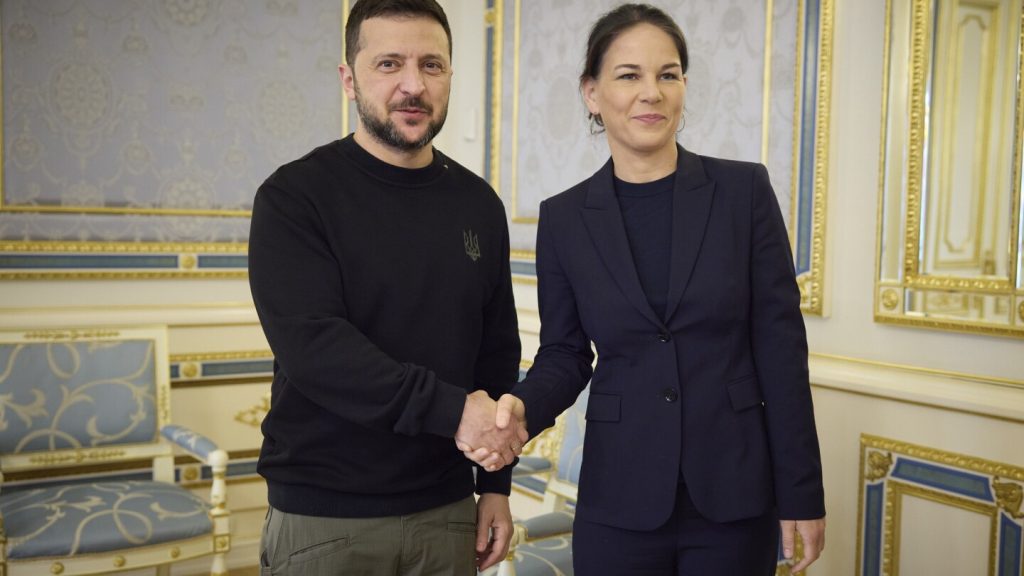Germany’s foreign minister, Annalena Baerbock, emphasized the need to send air defense systems to Ukraine to protect it from Russian cruise missiles, rockets, and drones during her visit to Kyiv. Germany has launched a “global initiative” to provide more air defense systems to Ukraine, raising nearly 1 billion euros. However, Baerbock acknowledged that more support is needed, especially sophisticated air defense systems like U.S.-made Patriots, to help Kyiv fend off Russian air assaults that have been targeting civilian areas, the power grid, and military targets.
As Ukraine’s troops face a fierce Russian offensive along the eastern border, there is a critical need for additional air defenses. Despite Germany’s recent pledge of a third U.S.-made Patriot battery for Ukraine, officials in Kyiv stress the alarming shortfall in air defenses against the Russian onslaught. The Kremlin’s forces have been using their advantage in the skies to target Ukraine’s power grid in an attempt to weaken Ukrainian morale and disrupt the defense industry. Baerbock visited a heavily damaged thermal power plant in central Ukraine, highlighting the impact of Russian attacks on critical infrastructure.
Ukrainian President Volodymyr Zelenskyy stated that Russian forces continue to focus their efforts on the eastern Donetsk province and northeastern Kharkiv region, using explosive-laden glide bombs to cause destruction. The ongoing attacks underscore the urgent need for additional air defense systems to protect Ukrainian warriors and communities. While Ukraine maintains control of contested areas, conflicting reports about battlefield developments make independent verification challenging. Security concerns led to the cancellation of Baerbock’s planned visit to Kharkiv, where Russian drone attacks have damaged transport infrastructure and wounded several people.
Russian troops are also engaging in reconnaissance and sabotage raids in Ukraine’s northern Sumy and Chernihiv regions, shelling border settlements, and laying minefields. The front line stretches approximately 1,000 kilometers, reflecting the scale of the conflict. However, Germany’s reluctance to provide Taurus missiles, capable of reaching deep into Russia from Ukrainian soil, highlights the complexities of international involvement in the war. Concerns about direct escalation and the risk of getting entangled in the conflict have influenced Berlin’s decision-making regarding military aid to Ukraine.
In response to the escalating situation, over 3,000 Ukrainian prisoners have applied to be pardoned and join the army, with more expected to follow. This initiative, signed into law by Zelenskyy, aims to bolster Ukraine’s military capabilities in the face of Russian forces outnumbering them. The program excludes prisoners convicted of serious crimes and requires applicants to pass tests before joining the army. Additional measures to boost military recruitment include increasing penalties for draft dodgers and providing incentives such as cash bonuses or assistance in purchasing a home or car. The ongoing conflict in Ukraine underscores the challenges faced by the country in defending itself against Russian aggression.


